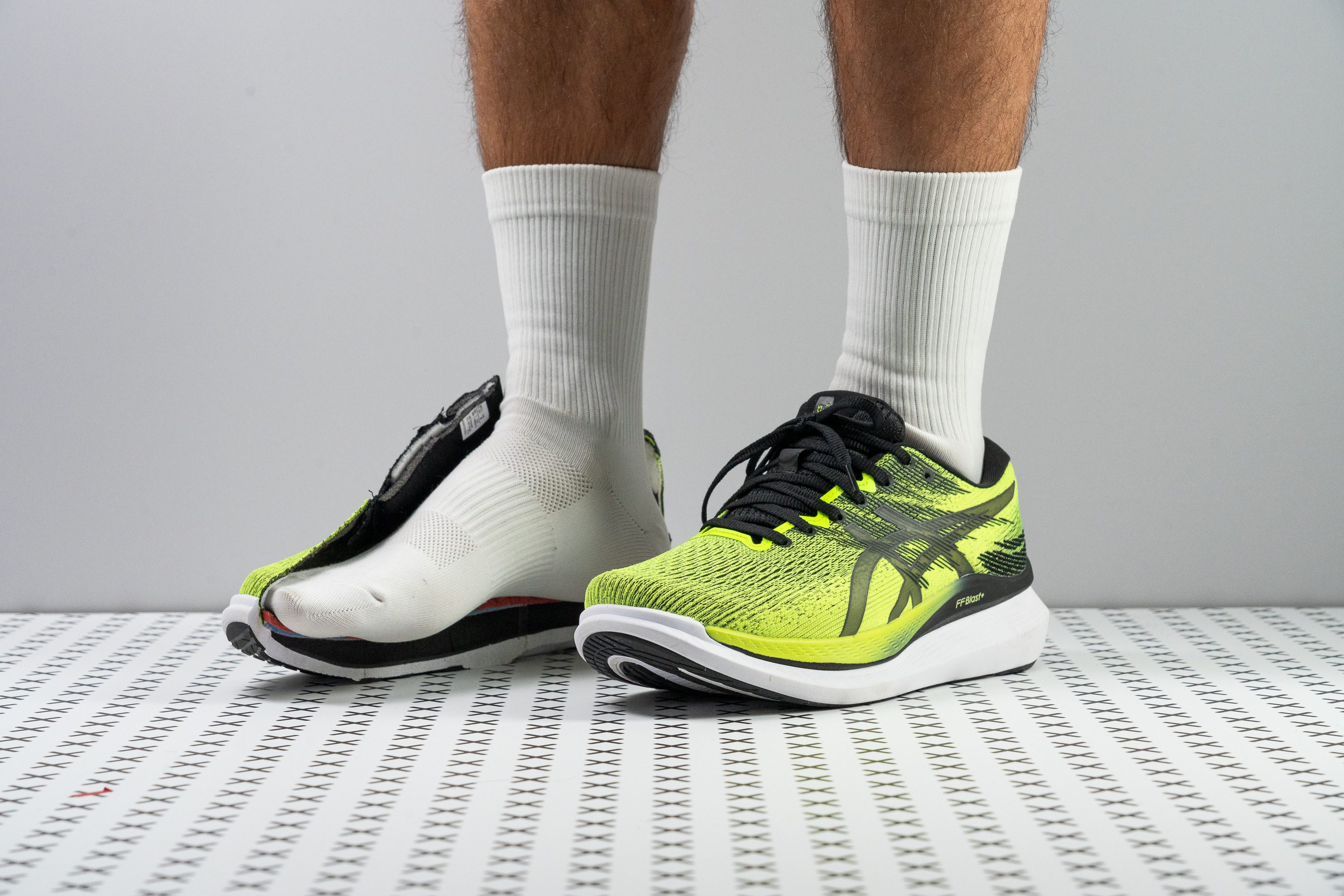Our verdict
Pros
- Seamless heel-to-toe transitions
- Very stable
- Lighter than version 2
- Dampens impact
- Welcomes wide feet
- Secure heel hold
- Long-lasting
- No lace bites
- Tongue stays in place
- Awesome value
Cons
- Warm for the summer months
- Lacks pop for faster runs
Audience verdict
- Top 11% in road running shoes
- Top 19% in ASICS running shoes
Comparison
The most similar running shoes compared
+ + Add a shoe | |||||
|---|---|---|---|---|---|
| Audience score | 91 Superb! | 86 Good! | 90 Superb! | 88 Great! | |
| Price | $150 | $105 | $180 | $179 | |
| Pace | Daily running | Daily running | Daily running | Daily running | |
| Shock absorption | - | Moderate | High | - | |
| Energy return | - | Low | Moderate | - | |
| Traction | - | Moderate | High | - | |
| Arch support | Neutral | Neutral | Neutral | Neutral | |
| Weight lab Weight brand | 9.5 oz / 270g 9.4 oz / 266g | 10.4 oz / 295g 10 oz / 283g | 9.6 oz / 272g 9.7 oz / 275g | 9.4 oz / 266g 7.6 oz / 215g | |
| Drop lab Drop brand | 11.1 mm 5.0 mm | 12.3 mm 10.0 mm | 9.4 mm 6.0 mm | 9.4 mm 10.0 mm | |
| Strike pattern | Heel | Heel | HeelMid/forefoot | HeelMid/forefoot | |
| Size | Slightly small | True to size | True to size | - | |
| Midsole softness | Soft | Soft | Balanced | Soft | |
| Difference in midsole softness in cold | Big | Normal | Small | Big | |
| Toebox durability | - | Decent | Decent | - | |
| Heel padding durability | Bad | Good | Bad | - | |
| Outsole durability | - | Good | Good | - | |
| Breathability | Moderate | Moderate | Moderate | Breathable | |
| Width / fit | Narrow | Narrow | Medium | Narrow | |
| Toebox width | - | Medium | Medium | - | |
| Stiffness | Stiff | Moderate | Stiff | Stiff | |
| Torsional rigidity | Stiff | Stiff | Stiff | Moderate | |
| Heel counter stiffness | Flexible | Moderate | Moderate | Flexible | |
| Rocker | ✓ | ✗ | ✓ | ✗ | |
| Heel lab Heel brand | 42.7 mm 40.0 mm | 37.6 mm 35.0 mm | 39.9 mm 37.0 mm | 35.2 mm 35.0 mm | |
| Forefoot lab Forefoot brand | 31.6 mm 35.0 mm | 25.3 mm 25.0 mm | 30.5 mm 31.0 mm | 25.8 mm 25.0 mm | |
| Widths available | Normal | NormalWideX-Wide | Normal | Normal | |
| Orthotic friendly | ✓ | ✓ | ✓ | ✓ | |
| Season | All seasons | All seasons | All seasons | SummerAll seasons | |
| Removable insole | ✓ | ✓ | ✓ | ✓ | |
| Ranking | #35 Top 10% | #186 Top 49% | #44 Top 12% | #125 Top 33% | |
| Popularity | #304 Bottom 21% | #76 Top 20% | #190 Top 50% | #350 Bottom 9% |
Size and fit
Size
ASICS GlideRide 3 fits slightly small (17 votes).
Who should buy the ASICS GlideRide 3
Treat yourself today with the third version of the ASICS GlideRide if you want a:
- pair of long-distance running shoes that are comfy and smooth-rolling
- neutral shoe that has pronounced stability and is lightweight
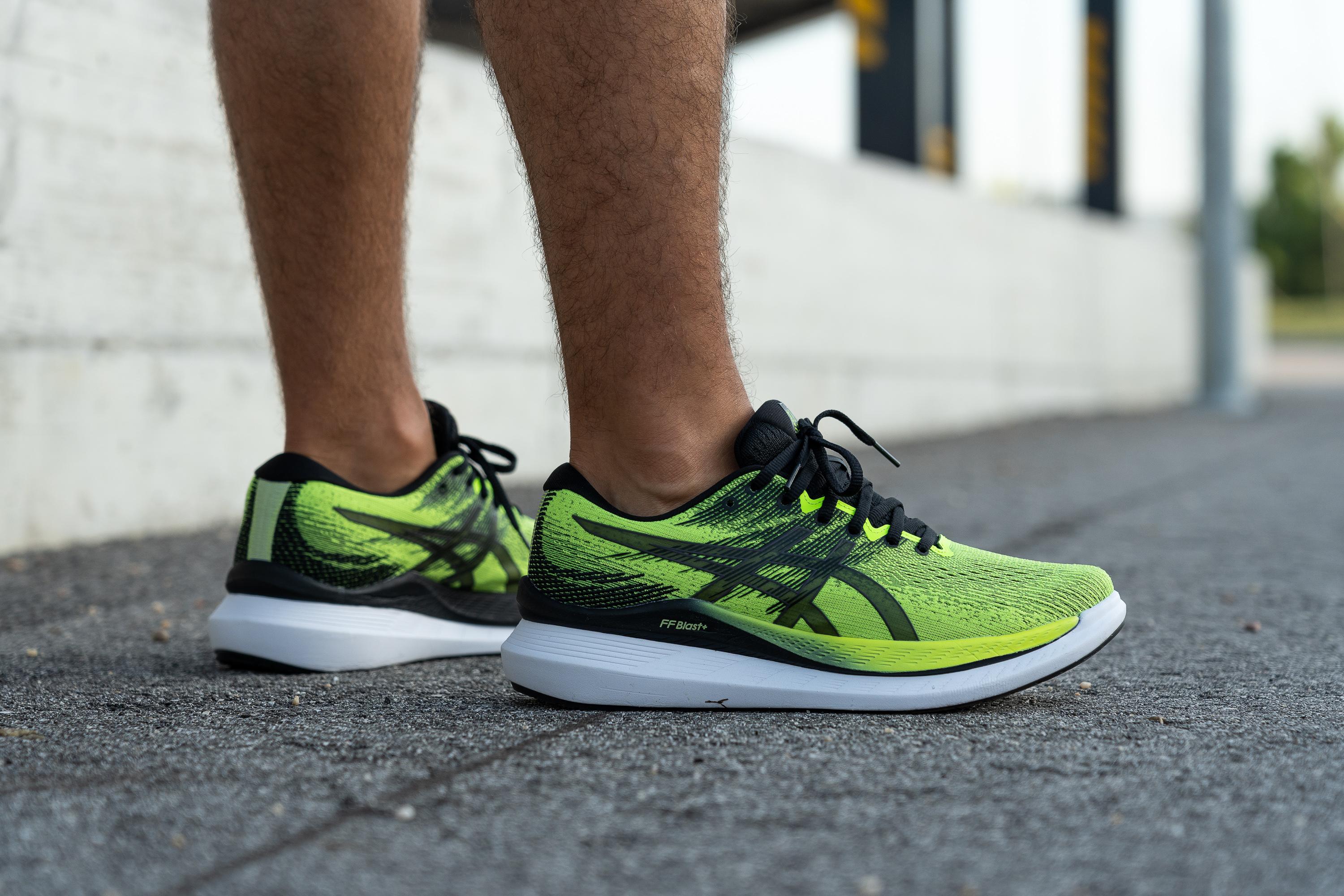
Who should NOT buy
Looking for a shoe that can do more? We highly recommend the ASICS Novablast 3 which is a legit workhorse that will let you pick up the pace easily when it's not your easy-run day.
ASICS GlideRide 3 vs. 2
The third iteration of the GlideRide introduces a few important updates:
- Lighter by around 0.5 oz
- Livelier and softer ride, thanks to the new Flyte Foam Blast+ midsole
- A more flexible design
- Plusher upper to nail that luxury comfort
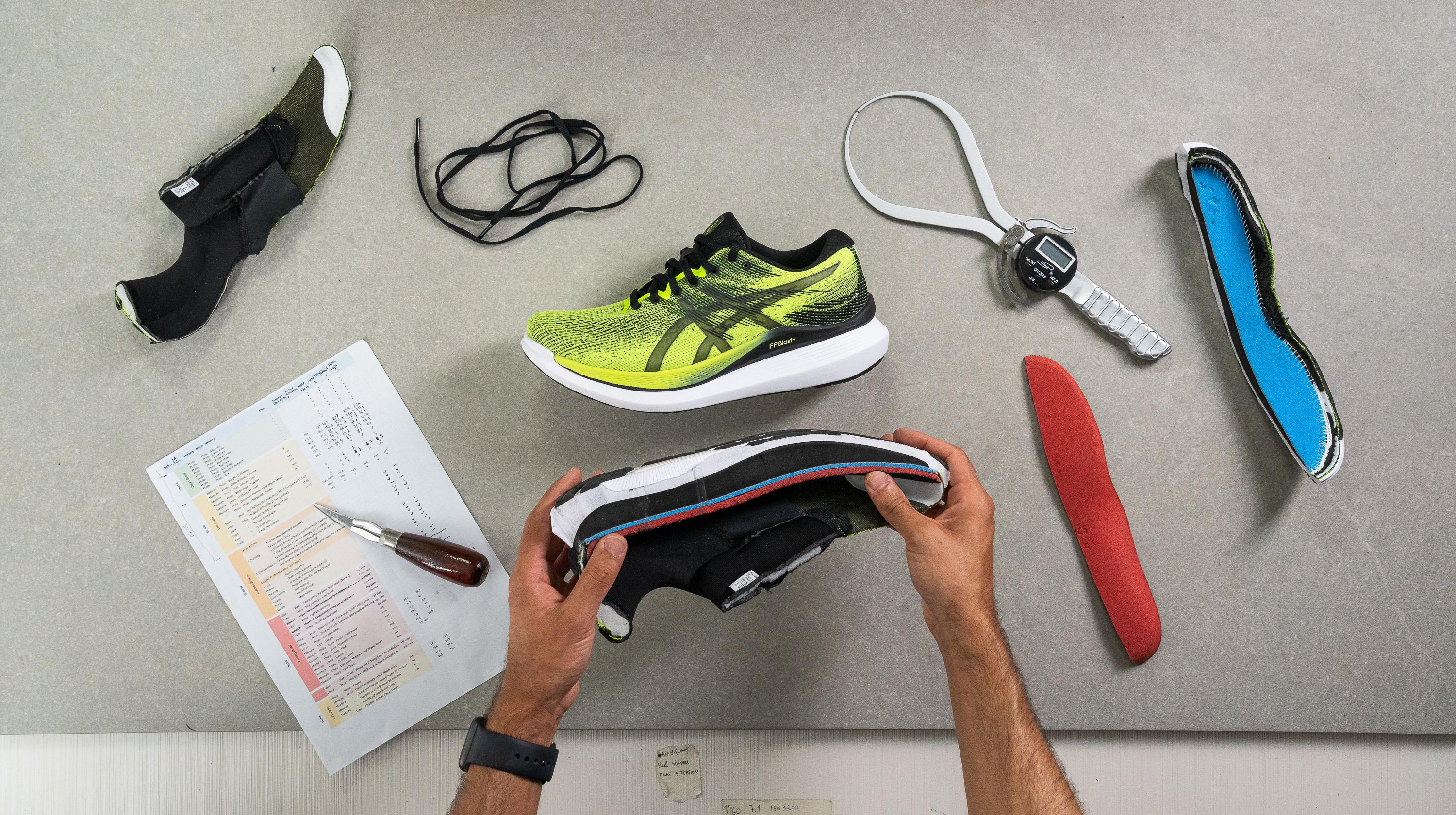
Smooth like butter
The GlideRide 3 from ASICS has a pretty sharp rocker geometry. In our test runs, it created a sort of forward-tipping sensation that helped our feet roll forward seamlessly and without much effort.
Having such a distinct rocker design definitely helps the GlideRide stand out from the crowd.
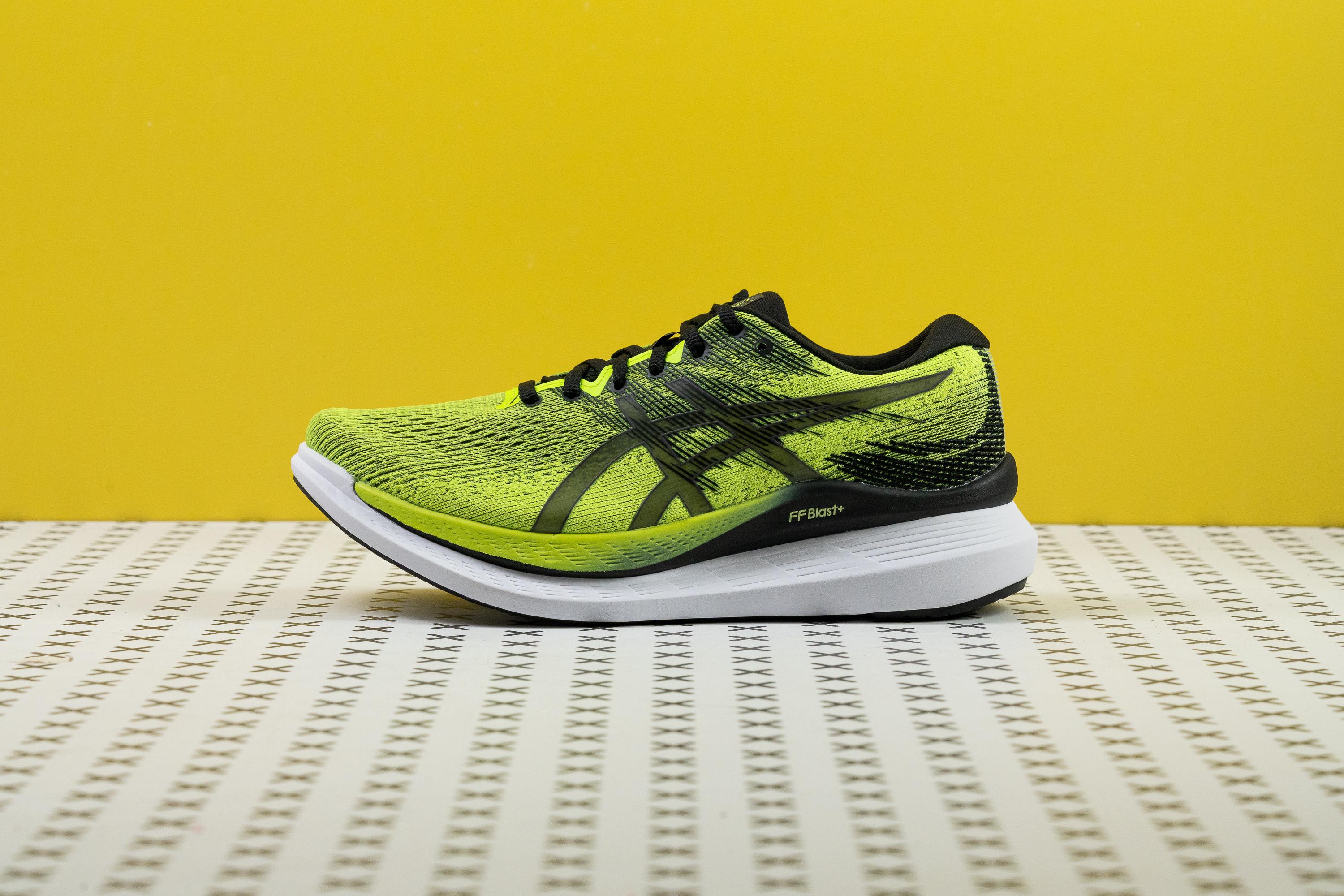
Ride: Filed under fun
Comparing the GlideRide 3 to its predecessor, we could feel a pretty significant difference in the ride as it got bouncier and even more energetic.
The ASICS GlideRide 3 is a mile eater!
The GlideRide version 3 is not preposterously soft, but it delivers a really high level of comfort. So much so that we were able to clock up some long miles in this shoe.
Back in the lab, our durometer confirmed that the GlideRide 3 is among the softest shoes not only from ASICS but across other brands too. At 14.0 HA, this ASICS shoe is 70% plusher than road running shoes on average!
Disclaimer: We took 5 measurements before making a final statement. The photo shows one of them.
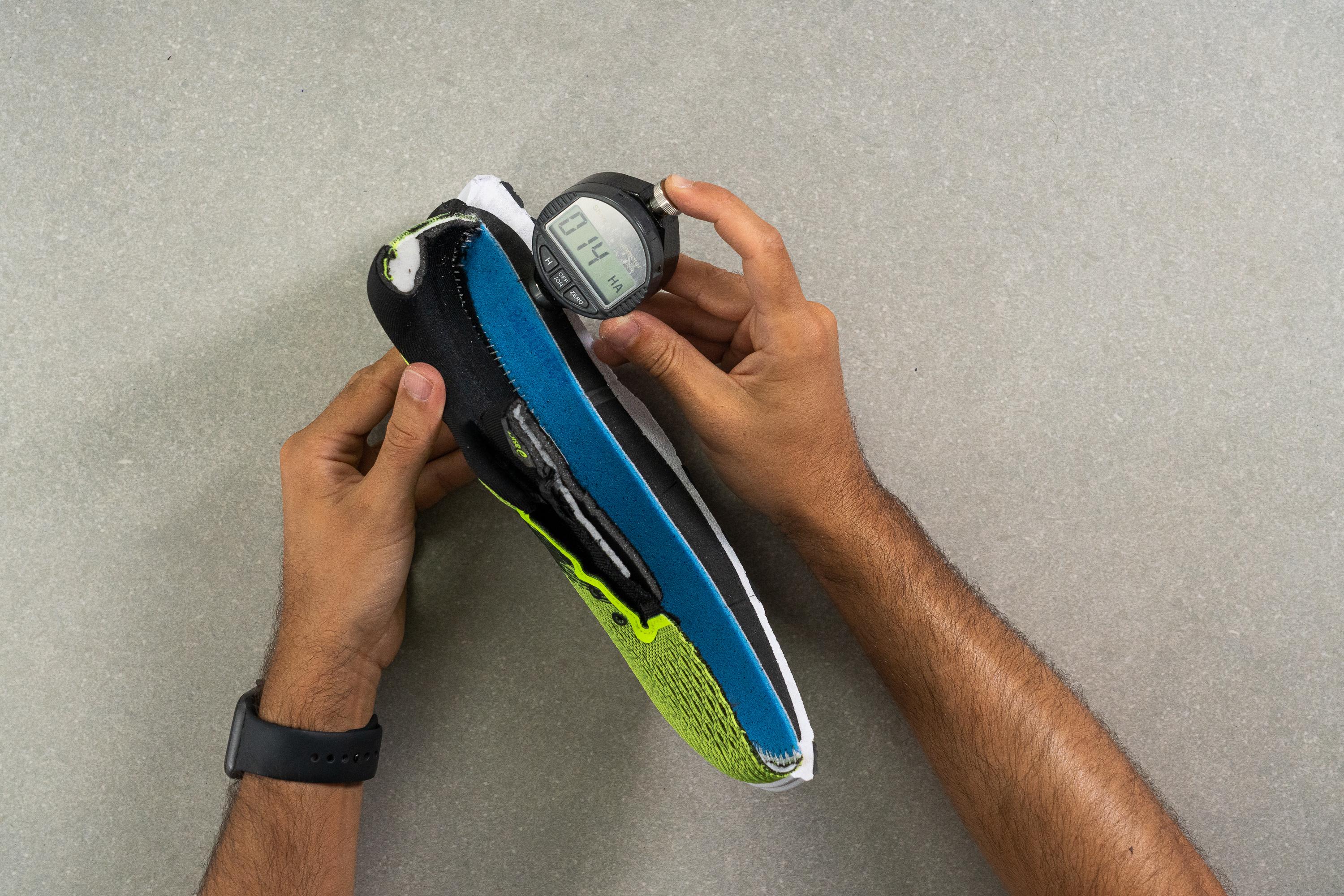
However, when exposed to cold temperatures, the foam does firm up significantly. It gets 53.6% harder, while most running shoes only get around 23.1% firmer.
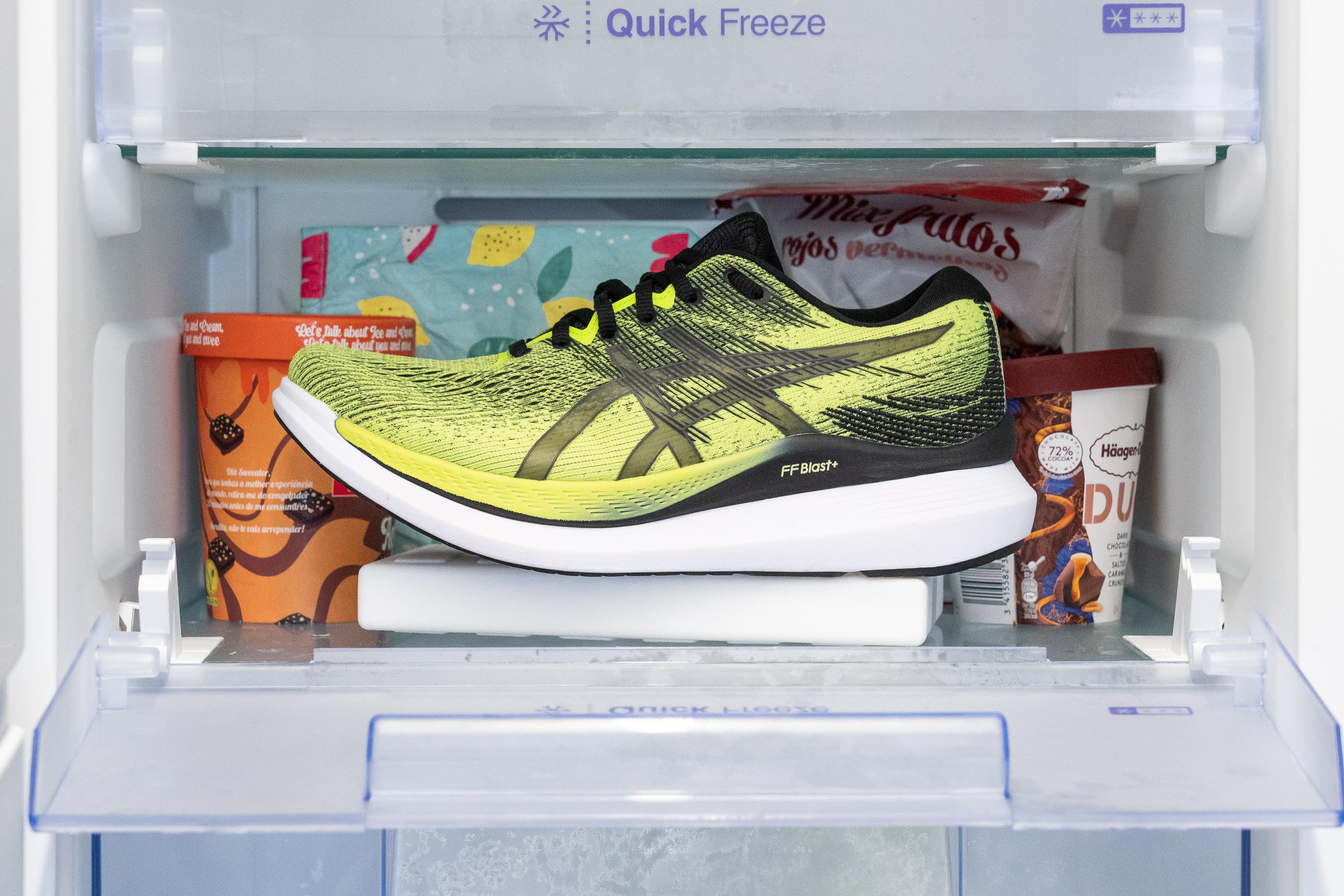
Forget about foot strain with THIS cush
In addition to being plush, the ASICS GlideRide 3 has an enormous slab of cushioning! We felt as though that thing ate up all of the impact for breakfast!
Measuring the shoe's stack height with a caliper, we found that the GlideRide 3 comes in at a whopping 42.7 mm! Unbelievable! That's a whole centimeter taller than road running shoes on average!
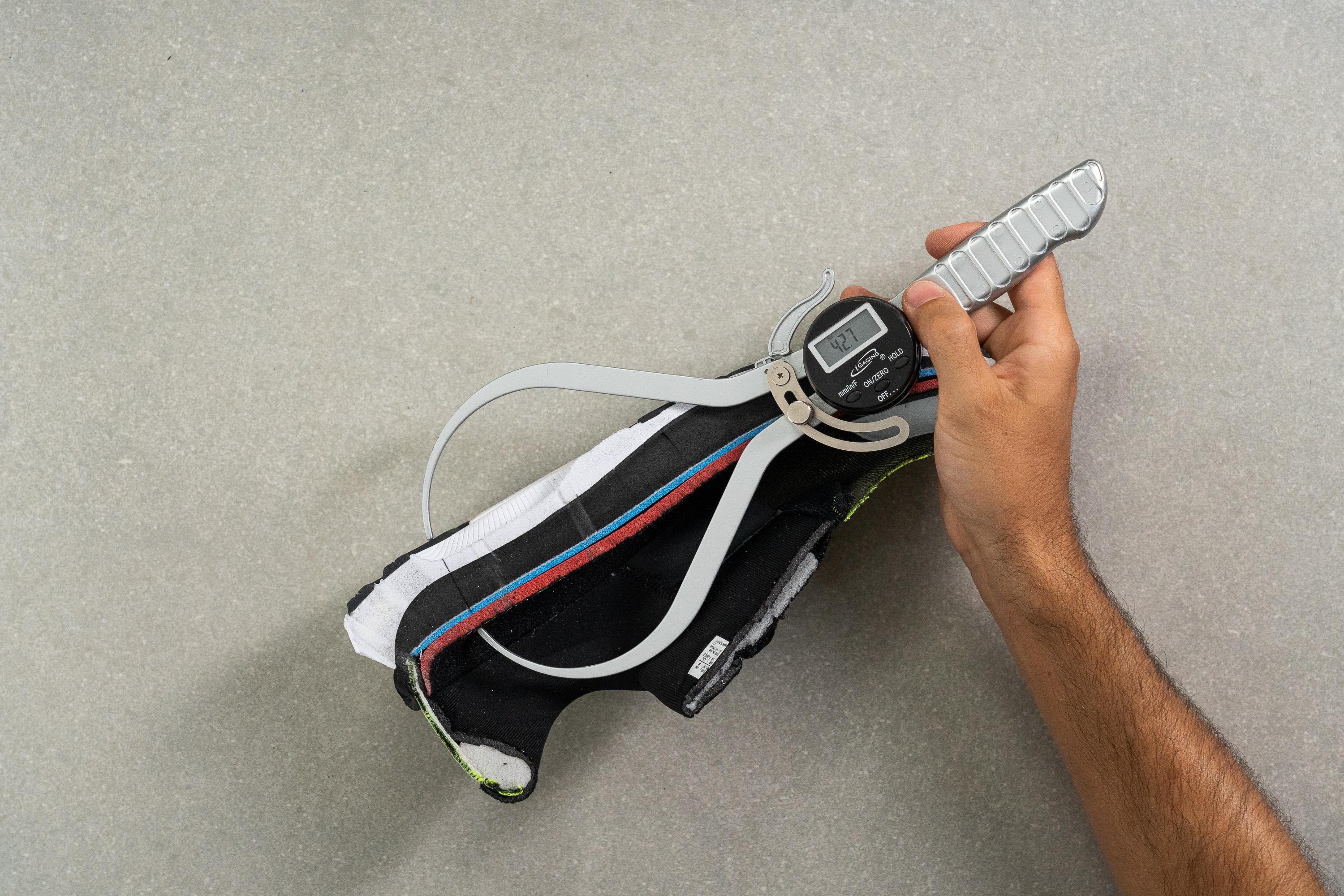
Meanwhile, the heel-to-toe drop appears to be far from the brand's officially stated 5 mm. We measured it to be 11.1 mm! This is a typical drop for daily trainers.
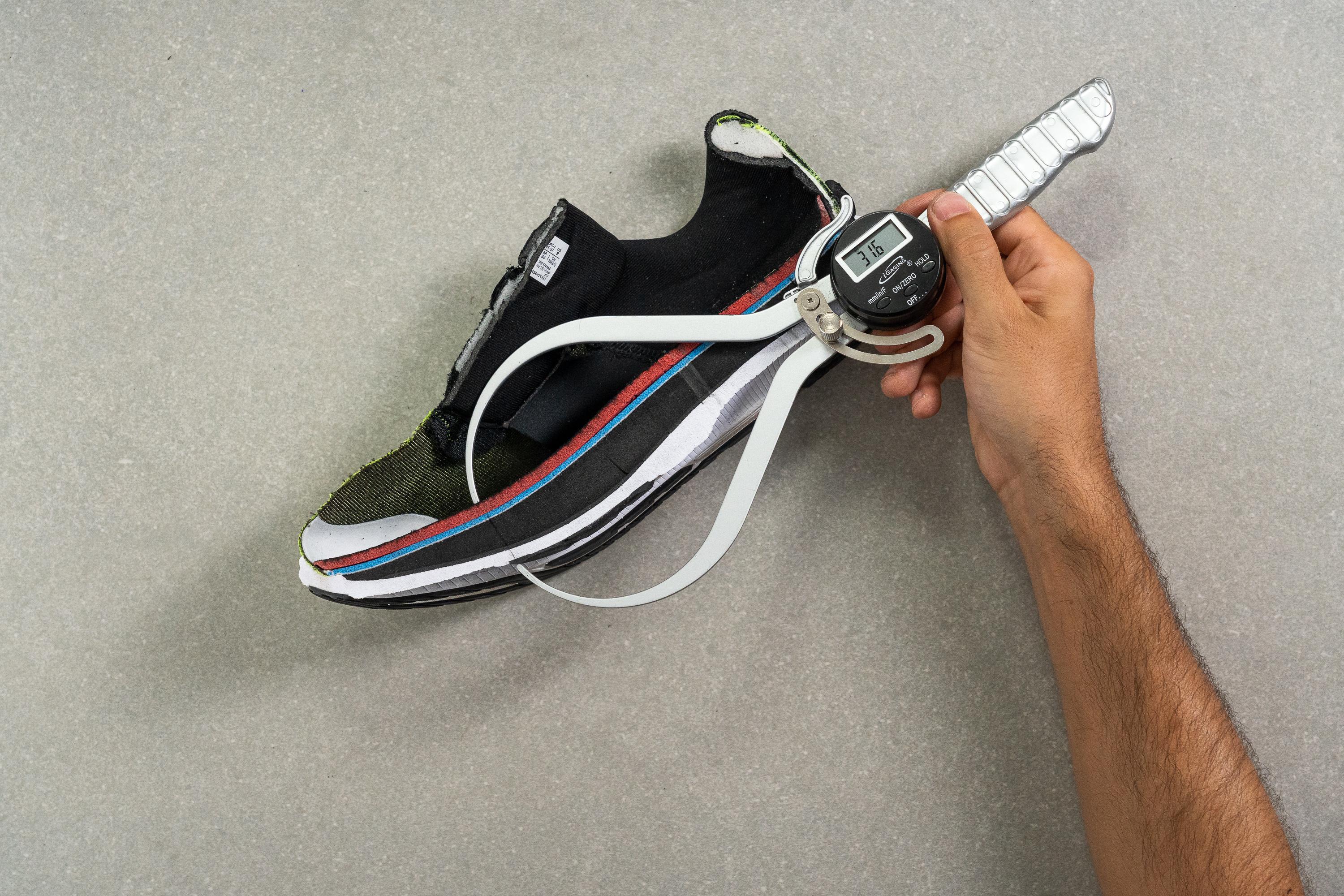
Underfoot cushioning is enhanced by the 5-mm insole. It is 0.5 mm thicker than the average.
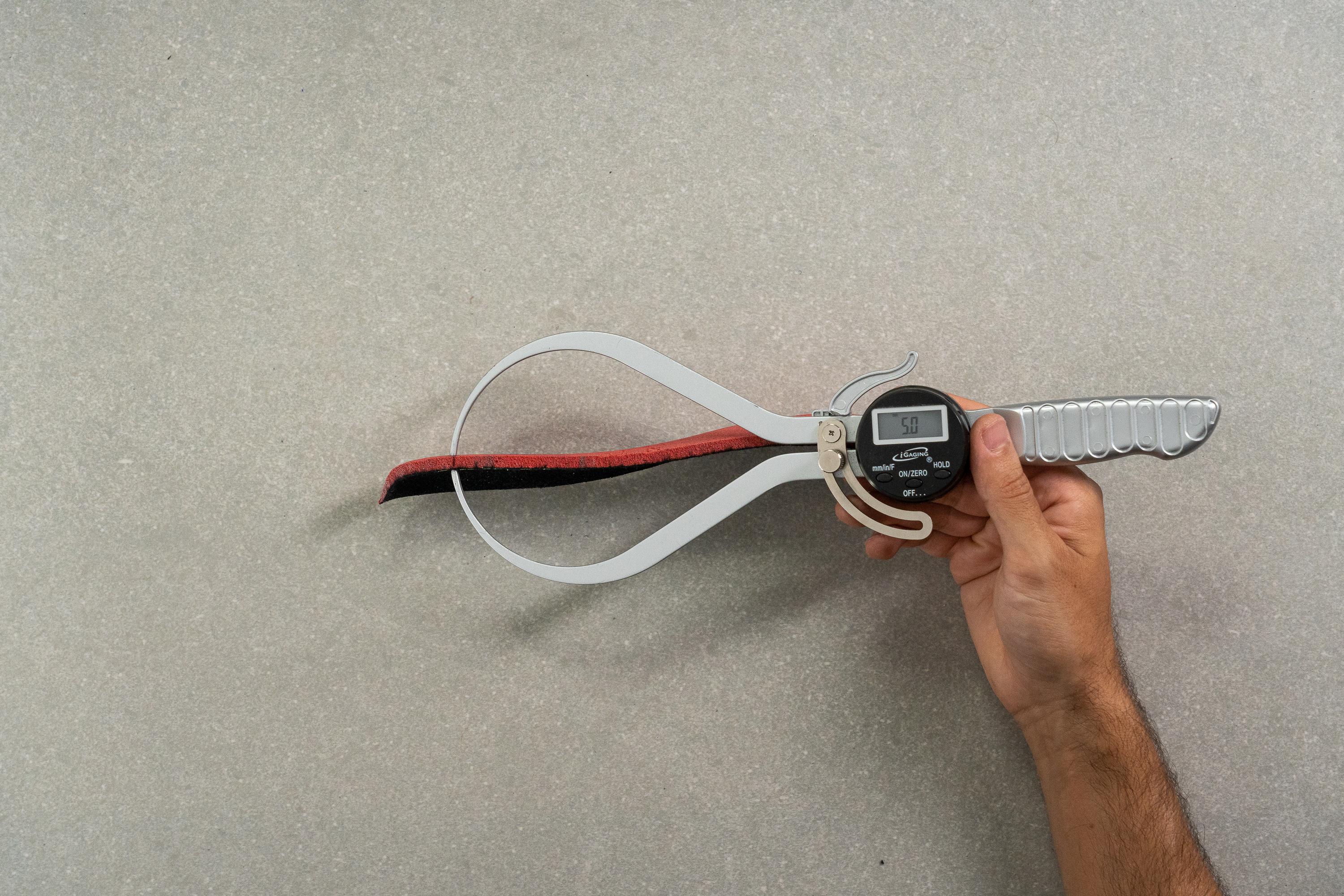
Is this really a neutral shoe?
Yes, it is. But it feels very similar to a stability shoe. The midsole's bottom part is the firmer FlyteFoam Propel that creates a layer of support. On top of this, the midsole is slightly raised on the sides which helps to center the foot.
This combination helped us feel pretty confident in our steps even as our legs started to get tired towards the end of the run.
A GlideRide that actually bends
Both the GlideRide 1 and GlideRide 2 were so stiff that it was practically impossible to bend them! But the 3rd iteration is here to turn things around.
But even though we were able to bend the GlideRide 3, it still turned out to be considerably stiffer than most running shoes. Looking at the amount of force it took us to flex the shoe (40.3N), it is actually 25% stiffer than road running shoes on average.
The torsional flexibility of this ASICS shoe is also on the stiffer side of things. In our subjective assessment, we rated the shoe 4 out of 5 (5 is the stiffest).
An accommodating fit
Having medium-width feet, the ASICS GlideRide 3 felt true to size on us.
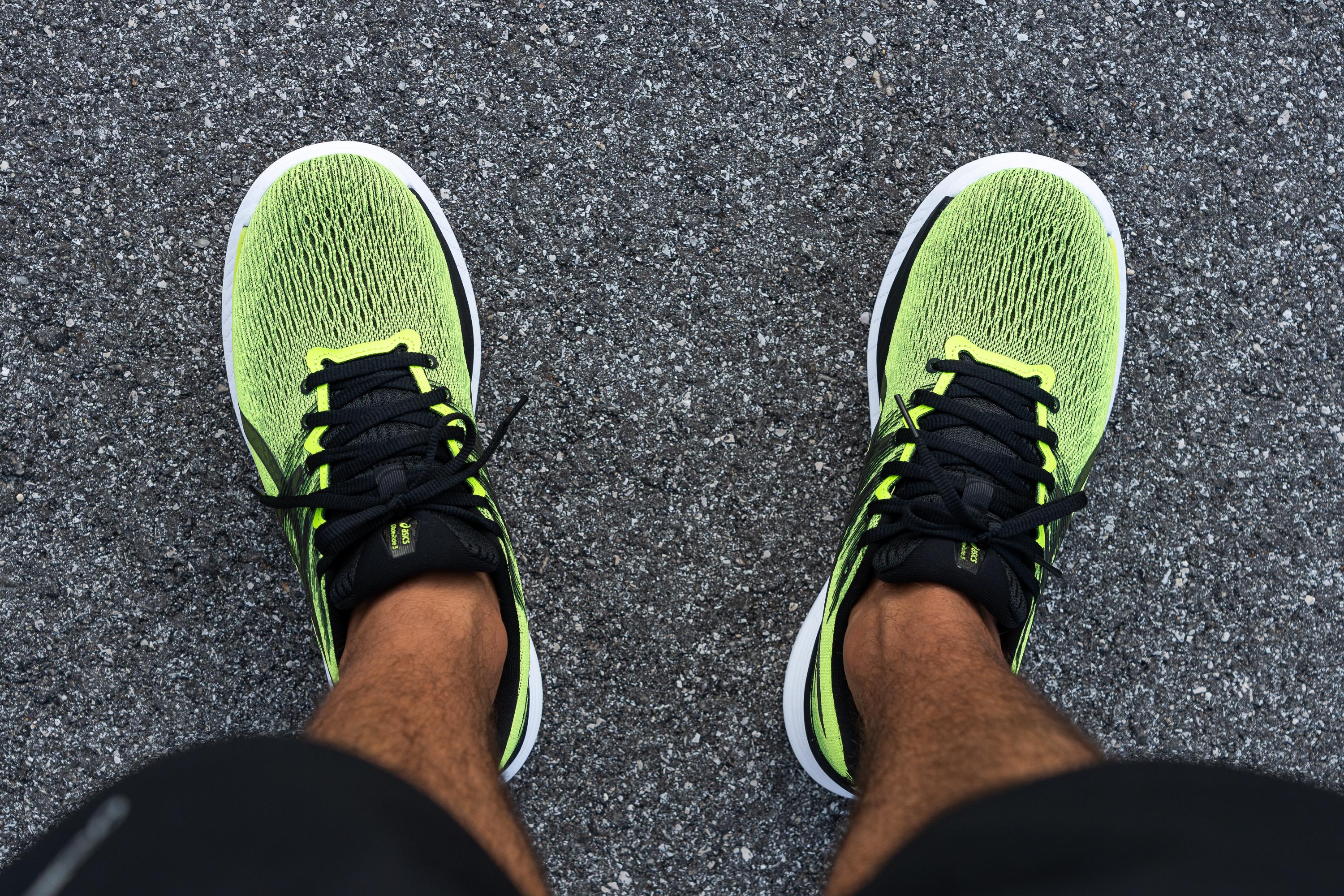
When measuring the shoe's toebox with a caliper, we actually found it to be 2 mm narrower than average. It is 95.8 mm at its widest part but the good news is that the upper fabric is quite forgiving and stretches to accommodate the foot.
However, in our opinion, this is not going to be enough for wide feet. But luckily, the GlideRide 3 is available in a wide option as well.
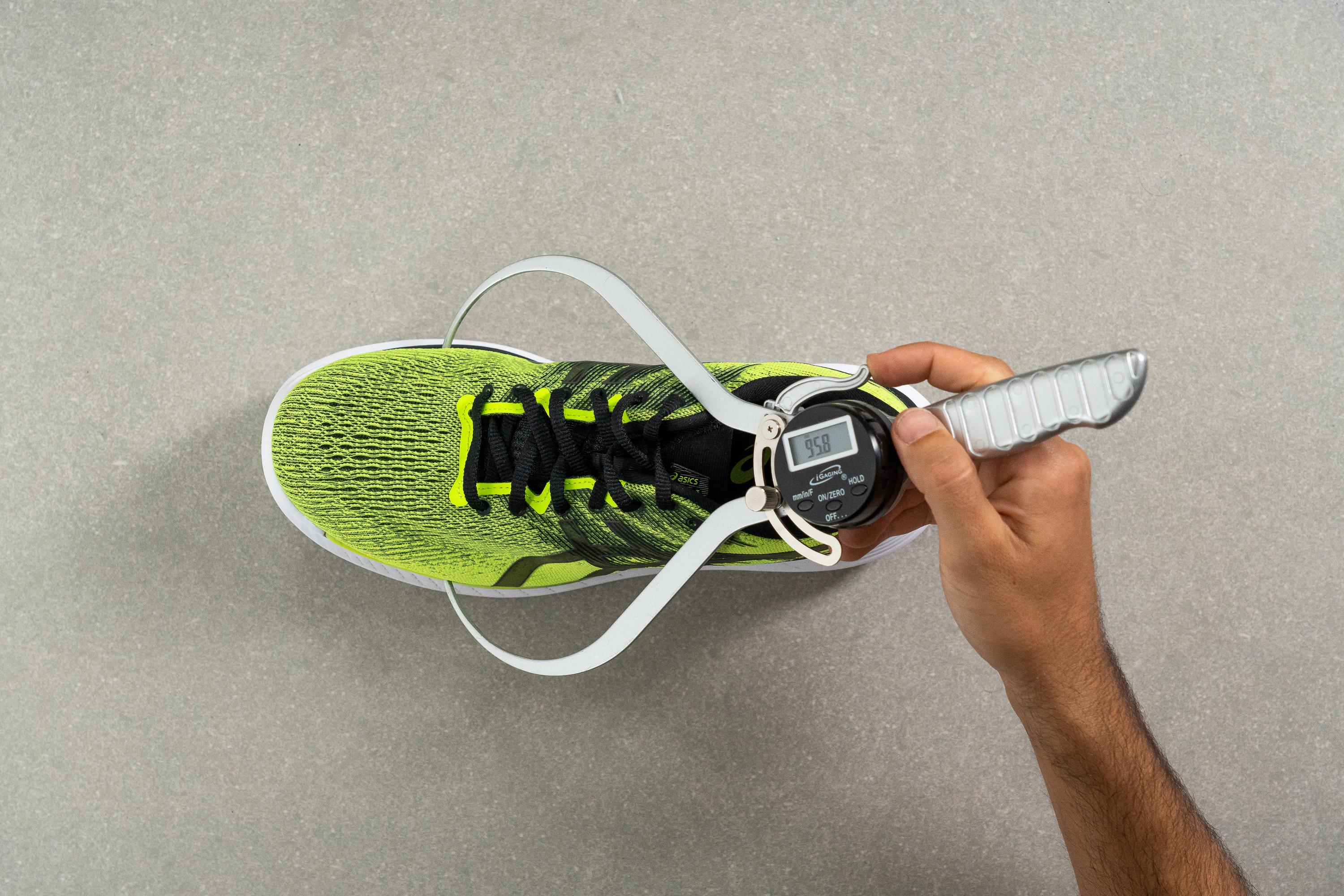
Upper screams plush comfort
The well-padded upper of the GlideRide 3 puts its comfort off the charts! Even better, the ample padding also positively contributes to the shoe's secure lockdown, especially in the rearfoot area.
Assessing the heel counter, we gave it 2 out of 5. It is more flexible and forgiving than the average. It is not the "ASICS clutch" of a Kayano shoe but seems to do the job of keeping the heel in place just fine.
We never felt our feet shifting or sliding inside the shoe.
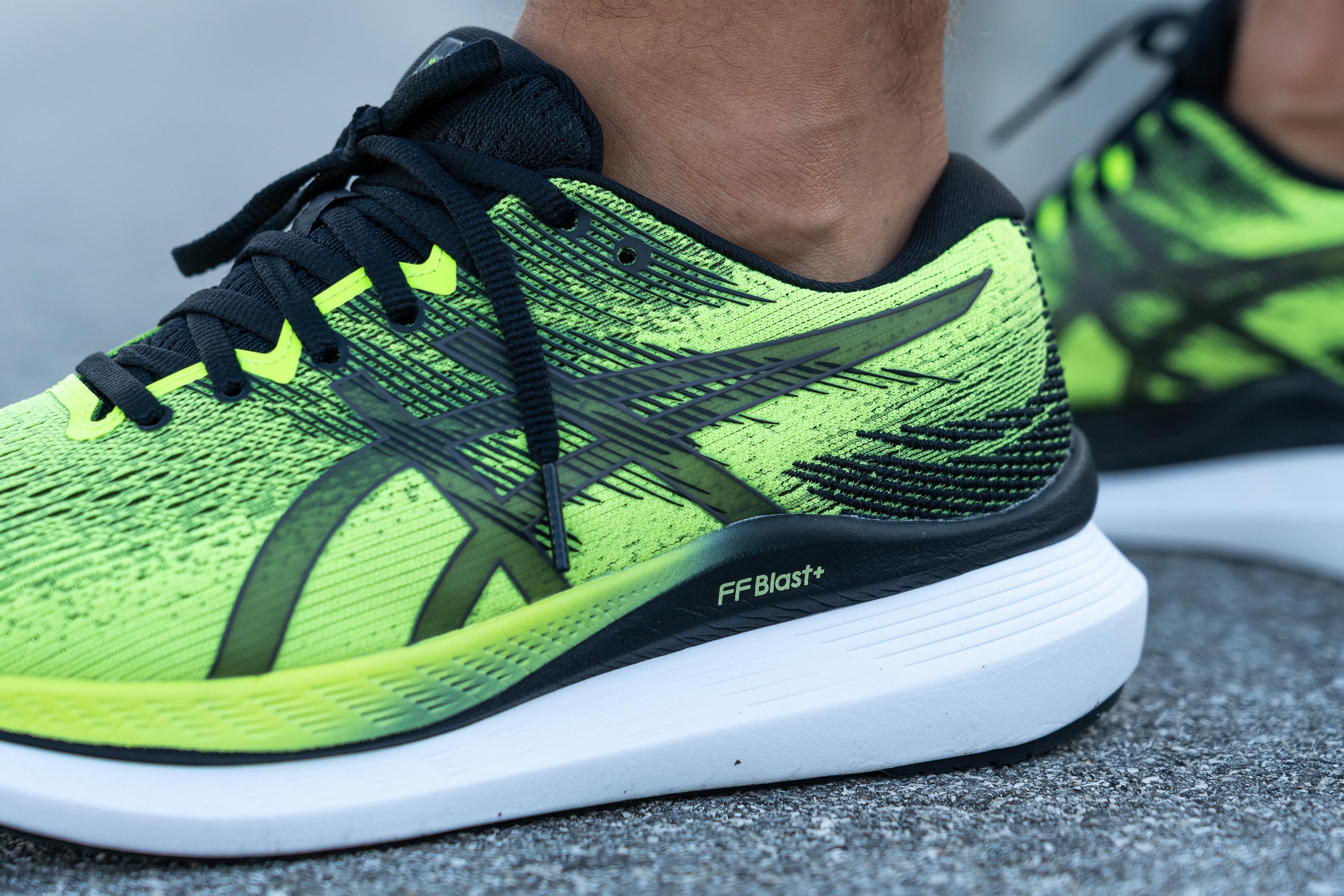
Breathability needs improvement
The shoe's upper performed rather well in our breathability tests. It lets the smoke pass through much easier compared to the Kayano 29 on the right. On a 1-5 scale where 5 is the most breathable, we gave it a solid 4.
You can also see how much light is shining through the upper fabric in the transparency test below.
The tongue makes a name for itself
It's semi-gusseted (meaning it's attached to the sides); it stays in place the entire run.
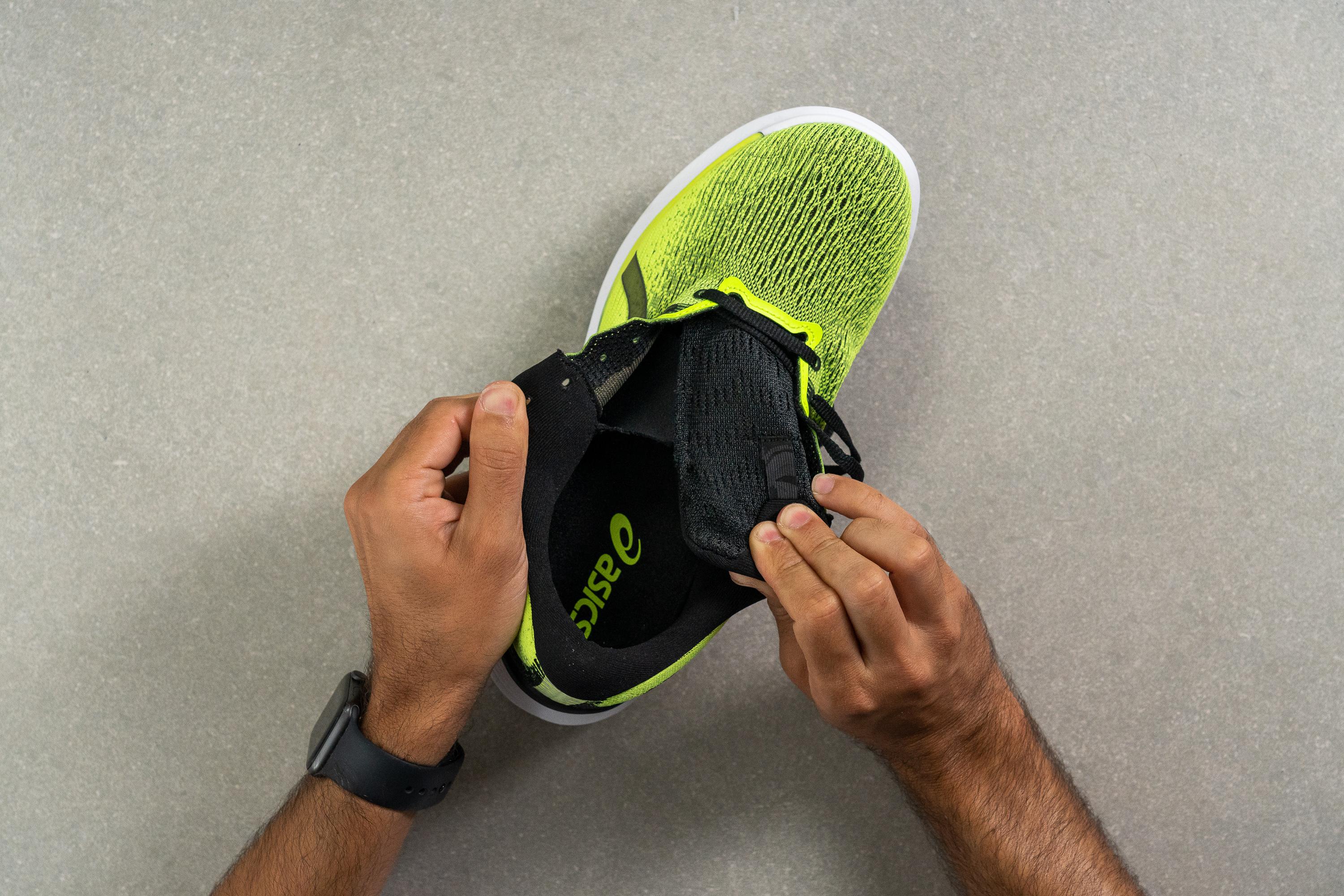
Even better, it's padded enough to keep the laces from digging into the skin. The shoe's tongue actually beats records in terms of padding. It is 9 mm thick! The typical thickness for most running shoes is 5.8 mm.
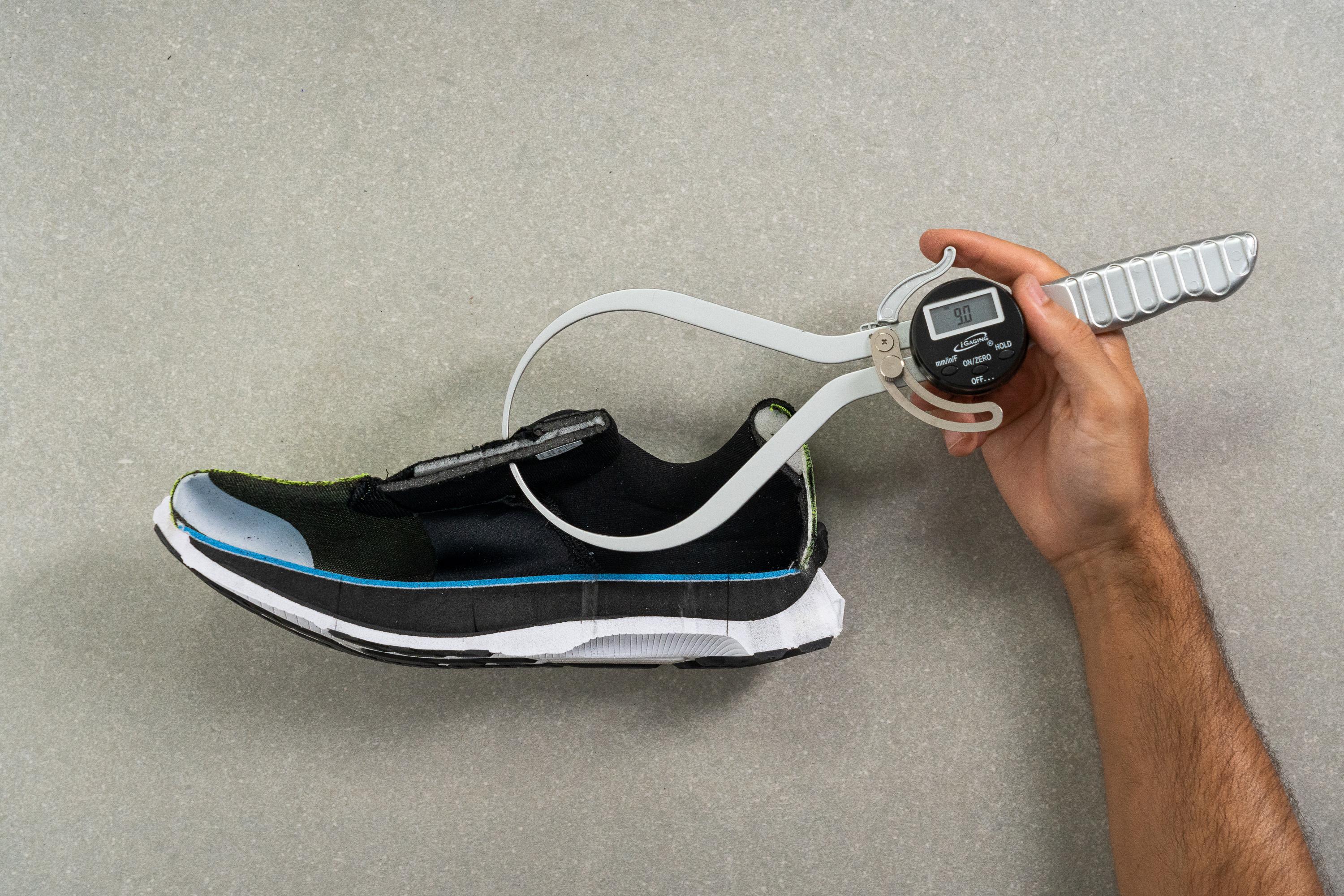
Reflective elements on the heel
Running in low-light conditions is not a problem with the ASICS GlideRide 3. It features wide reflective stripes at the heel.
Expect nothing less from ASICS AHAR outsole
It's not just your regular (tank-like) AHAR outsole. This is AHARPLUS, meaning durability has taken a step up.
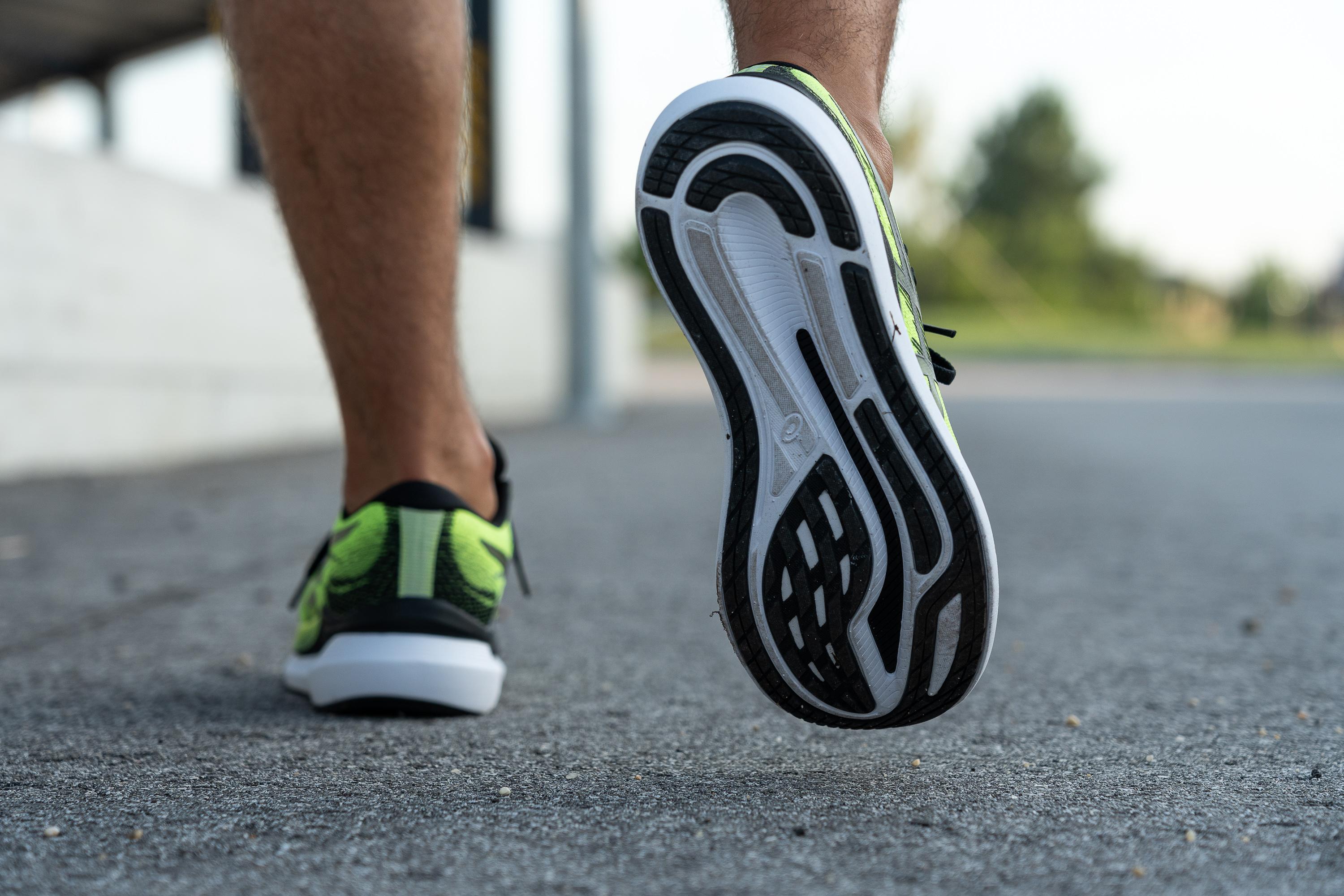
We believe that the ASICS GlideRide 3 is a truly heavy-duty workhorse. Looking at how unscathed the shoe's outsole is after 30 miles, we predict that it can go way beyond the typical 500 miles.
The shoe features a solid, 3.4 mm thick layer of rubber on the outsole.
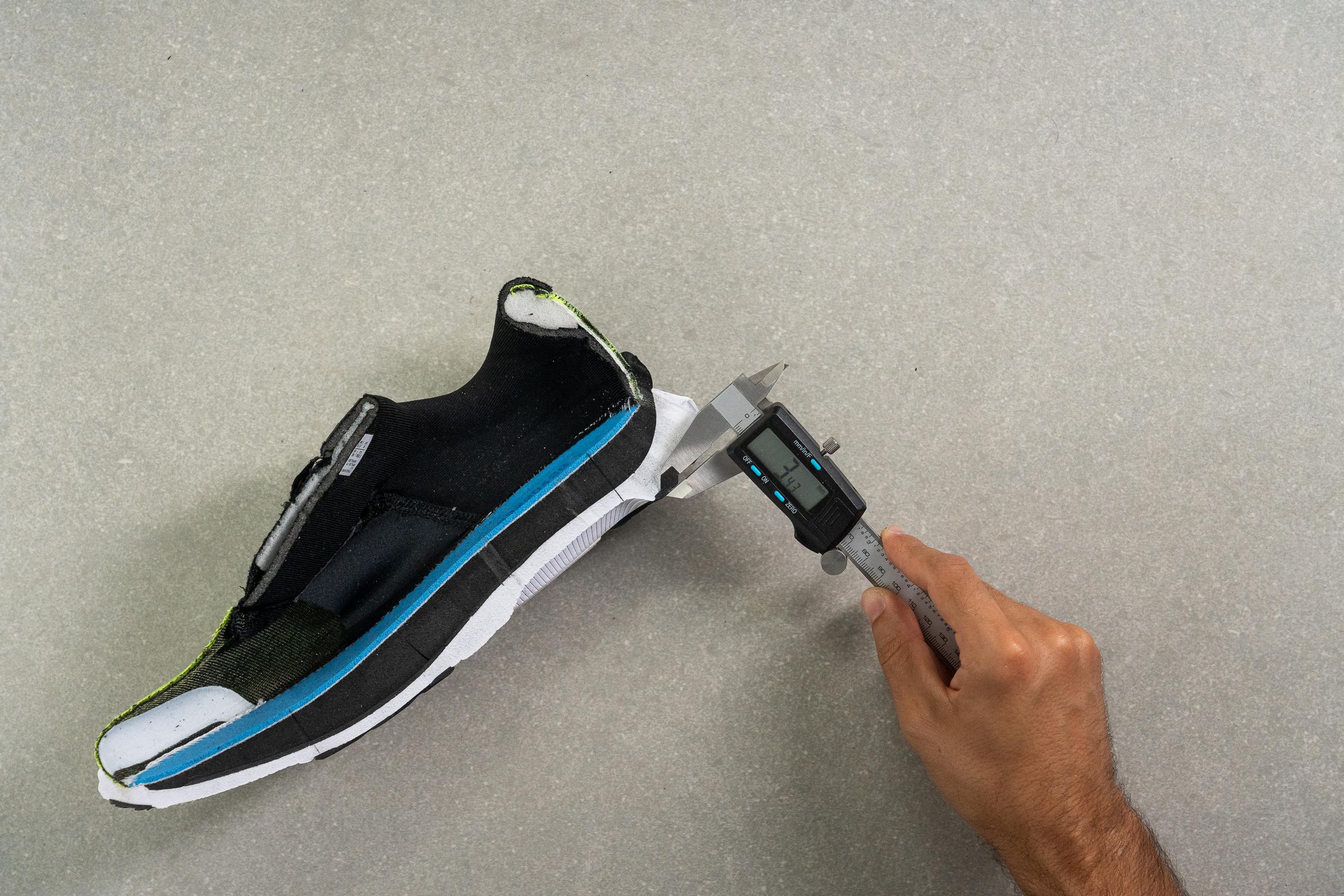
The rubber on this shoe also shows above-average density which is a contributing factor to the outsole longevity. It is 8% firmer than the average.
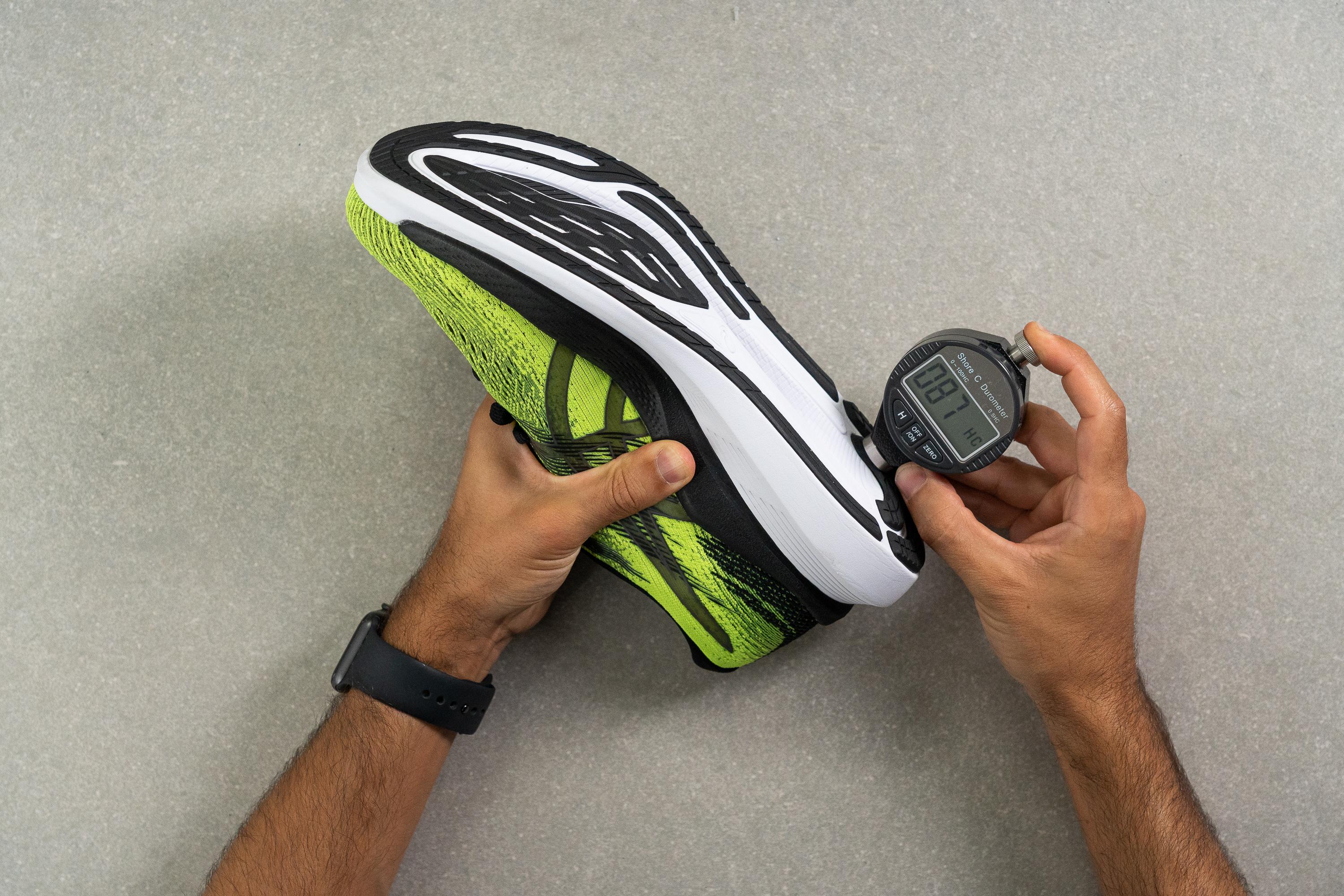
Quality lives up to the price
Daily trainers, on average, retail for $132, making the ASICS GlideRide 3 rather expensive at $150. However, runners find it a good deal at this price point, given its durability and build quality.


